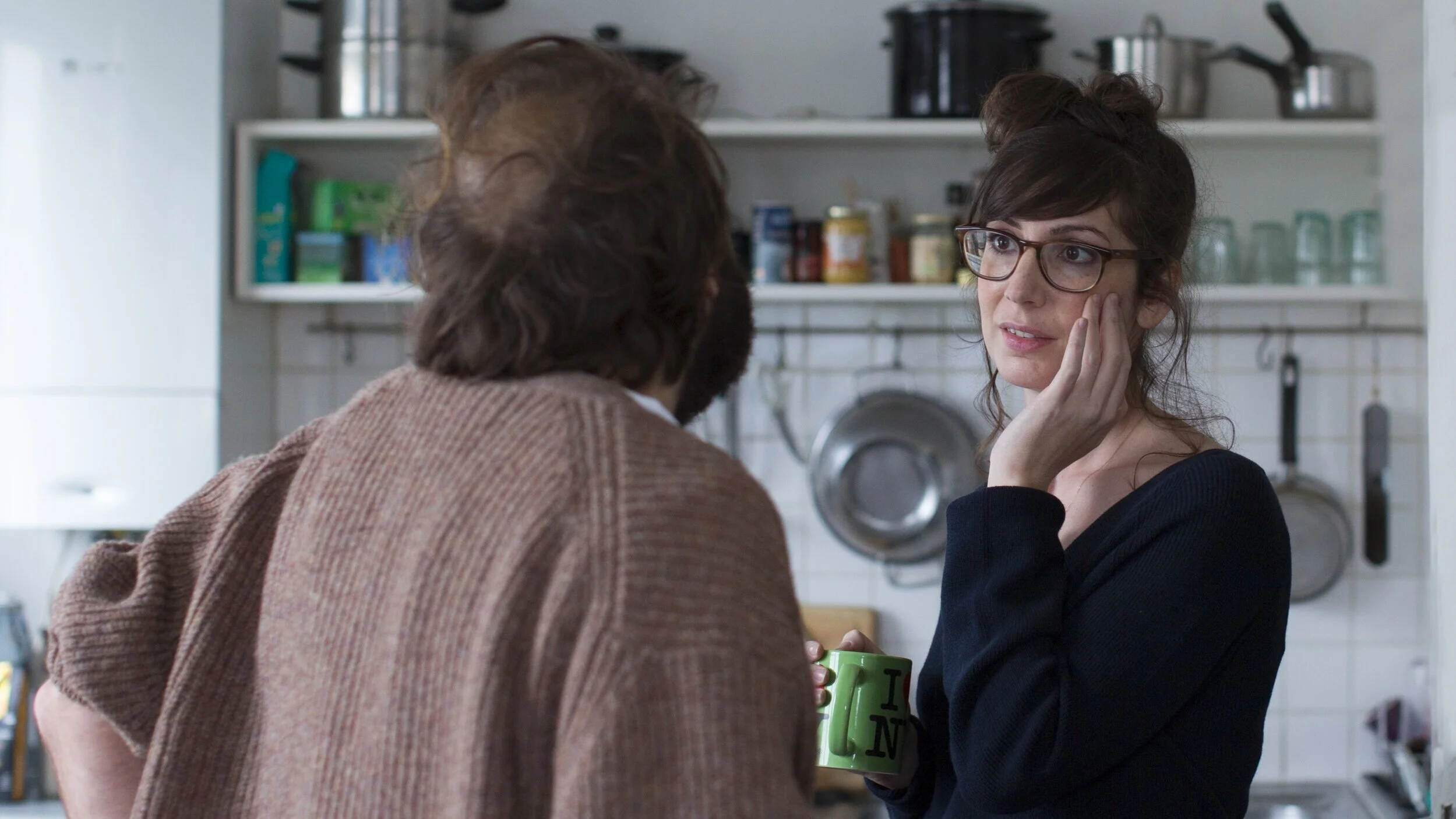Non-Fiction
Olivier Assayas stakes a claim for himself in Rohmeresque territory.
Vincent Macaigne and Nora Hamzawi
The French director Olivier Assayas may write his own screenplays but he has never been a filmmaker easy to pin down and this latest film of his, one of his finest achievements, is not a work that I would readily have identified as his. A quintessentially French movie, it is a contemporary piece set in the world of publishing and it comes across as a compellingly believable portrait of that milieu in much the same way that Mia Hansen-Løve gave us an utterly persuasive account of those who dedicate themselves to filmmaking in her 2009 film Father of My Children. Given that French culture encourages an intellectual outlook among authors and publishers alike, it is no surprise that Non-Fiction is a film in which talk plays a huge part. As such, Non-Fiction brings to mind the works of the late Eric Rohmer but, if it is akin to them not only in the importance of words but in its view of a group of characters whose observed lives take priority over any greater plot, Assayas nevertheless bring a tone of his own to the proceedings. In doing so, he applies a decidedly humorous touch, but never at the expense of credibility.
Non-Fiction is constructed as an ensemble work and is played accordingly. The central characters are five in number. Alain (Guillaume Canet) is a publisher married to an actress, Selena (Juliette Binoche), but indulging in an affair on the side with a young employee, Laure (Christa Théret). One of his authors is Léonard (Vincent Macaigne) who is living with Valérie (Nora Hamzawi) and who discovers at the outset that Alain is declining to publish his latest novel. This being the background, the current state of publishing - the threat of e-books and audio books whether seen as a change of direction among younger readers or as evidence of dumbing down - is in their minds for good reason. The fact that Selena would like to play Phaedra but has won wide recognition for starring in a cop series on television is similarly related to today's fashions. In contrast, the various affairs (more than one as we discover) and the troubles caused by them suggest that modern-day life is not so far removed from behaviour long established. Yet another aspect that we are asked to consider here is the way in which writers, justifiably or not, often draw on their own experiences which they then pass off as fiction. But this can come at the cost of others who are liable to find that gossip identifies them as the basis of some supposedly invented character.
Assayas gives us a film that invites us to take on board the various viewpoints and, as though joining in the discussion, we are encouraged to draw our own conclusions. Meanwhile we can relish the quietly persuasive performances by a cast who fully appreciate that this is an ensemble work (a special credit here for Juliette Binoche who, reversing her apt star turn in 2017's Let the Sunshine In, adjusts her acting style to the needs of the film). There's one joke which cuts across the film's sense of reality and I doubt that the soundtrack song that ushers in the end credits really suits the film. But, those two small points aside, Non-Fiction sees Assayas completely fulfilling his intentions and, the more you think about the human behaviour depicted, the more you come to feel that the rather enclosed world portrayed here carries much wider resonance about how many people live their lives.
Original title: Doubles vies.
MANSEL STIMPSON
Cast: Guillaume Canet, Juliette Binoche, Vincent Macaigne, Christa Théret, Nora Hamzawi, Pascal Greggory.
Dir Olivier Assayas, Pro Charles Gillibert, Screenplay Olivier Assayas, Ph Yorick Le Saux, Art Dir François-Renaud Labarthe, Ed Simon Jacquet, Costumes Jürgen Doering.
CG Cinéma/Vortex Sutra/ARTE France Cinéma/Playtime/Canal+/Cine+/Ad Vitam-Curzon Artificial Eye.
107 mins. France. 2017. Rel: 18 October 2019. Cert. 15.


